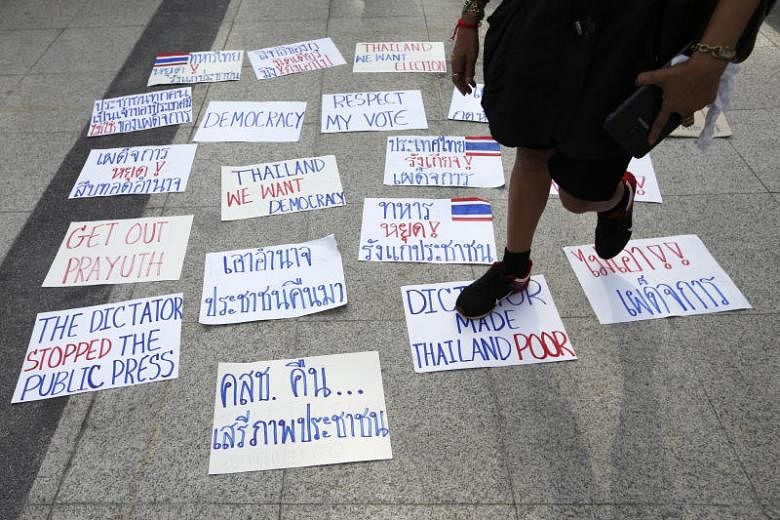BANGKOK (THE NATION/ASIA NEWS NETWORK) - Watana Muangsook, a key figure in the Pheu Thai Party when it held power, has made some interesting remarks about the stunning upset result in Malaysia's general election last week.
Impressed by 92-year-old former premier Mahathir Mohamad's restoration to power and musing on the consequences, he took to Facebook on Monday.
Watana noted that there is a possibility that ousted premier Najib Razak will be prosecuted for alleged corruption in office and drew a comparison to Thailand.
He said Thailand's "dictators" must be brought to court after the next election for their actions in power.
He said the 2014 military coup had caused "severe damage to the country and wasted a lot of state funds, while causing the most suffering to the people".
Watana said an "important mission" after the next election would be to restore democracy and reform the armed forces.
"The goal is to prevent anyone from using the armed forces to destroy democracy again. More importantly, coup-makers must be punished for causing damage to the country," he asserted.
The election results in Malaysia should be a lesson to Thais.
"Malaysia and developed countries prove that democracy can solve every problem," he said.
That last statement might be open for debate, but Watana was right to call for law-breaking government leaders to be prosecuted after they're ousted via the ballot box.
They must be brought to court and punished for any and every wrongdoing.
Watana, though, conveniently overlooks the fact that it's not just the coup-staging generals who must face punishment for damage done, but also elected politicians who savage the law while in power.
Dictators are not always military men.
Elected civilians can just as readily abuse their parliamentary authority and voter mandate to impose authoritarian rule for personal gain.
There is a term for this kind of government - kleptocracy.
That is what Najib's critics called his administration.
Watana also failed to mention a crucial reason why Najib lost the election.
Najib was embroiled (though not charged) in the multibillion-dollar embezzlement scandal involving the state fund called 1Malaysia Development Berhad.
Observers believe the majority of Malaysian voters wanted to send a clear message to politicians - stay clean or get out. And, at the ballot box, they managed to evict the ones perceived as guilty from government seats.
We hope Thai voters will follow the good example set in Malaysia and other democratically developed countries.
Voters should punish corrupt politicians by rejecting them and should keep candidates with even a whiff of criminality out of power.
To match the successful result seen in Malaysia, we need voters who are well informed.
They should be able to tell right from wrong.
They should base their decisions on real needs and the common good of the population, not on benefits they might personally accrue, such as handfuls of cash offered them in exchange for their votes. And they should guard against falling victim to blind faith.
Thai voters need to be acutely aware that corruption is a serious ill in our society.
They have to decide if corrupt politicians and their cohorts should be blocked from re-election.
These are the ways to effect change as happened in Malaysia.
Thai voters are capable of fostering political change through their votes, but it depends on them whether they recognise the time has come for change.
The Nation is a member of The Straits Times media partner Asia News Network, an alliance of 23 news media entities.

